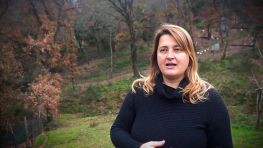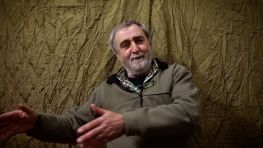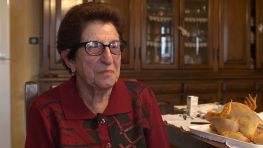 Viviano Venturi
Viviano Venturi Sandor Katz
Food and beverage fermentation
“All of the gratest delicacies of the world, all of the most compelling flavours that people love to eat are products of fermentation”: this is Sandor’s philosophy. He’s been in love with fermentation for over 20 years, since he discovered it could be a precious instrument to preserve the products of his garden.
He’s been travelling ever since and never stopped learning and experimenting with this natural process, which can bring huge benefits to our bodies when we’re the ones controlling it.
There’s a general stereotype that associates bacteria with diseases, so Sandor made it his mission to teach people about the importance of these precious micro-organisms. Not only they are able to make food more nutritious and easier to digest, but most importantly they help preserve it longer.
Coffee, cheese, cured meat, bread, wine and beer are all consequences of a process of fermentation that man has learned to control over the centuries in order to realise what became some of the most characteristic elements of every great cuisine.
Video table of contents
- The start of his passion about fermentation thanks to his garden
- Fermentation and its benefit: making products better, more nutritious and easier to preserve and digest
- His mission: to teach not to be afraid of bacteria
- Fermentation is easy: wine, cheese, sauerkraut and salami
- New things can be learned by researching and making mistakes
- Fermentation as a way to preserve food and avoid waste
- We need bacteria: fermentation makes products more nutritiou
- The rituals of fermentation and its religious connections
Interview information
Country: US
Region: Tennessee
Wikipedia: https://en.wikipedia.org/wiki/Sandor_Katz
Sandor Katz
Year: 1962
City: New York
School: University
Profession: Other
Languages: Inglese
Document by: Luca Percivalle, Francesca Torello
Video by: Luca Percivalle
Created: 25-05-2017
Questo video fa parte del seguente archivio
Knowledge on food
Knowledge on food
The archive contains gastronomic memories of the territory of Piedmont. Through these experiences and testimonies we explore the knowledge of those who prepare food daily, like chefs or housewives. The database shows us a picture of the universe of gastronomical productions which distinguish and identify this Italian territory. Research promoted by the Piedmont Region.






